5 Sneaky Tricks for Enjoying Exercise After 50, Experts Say
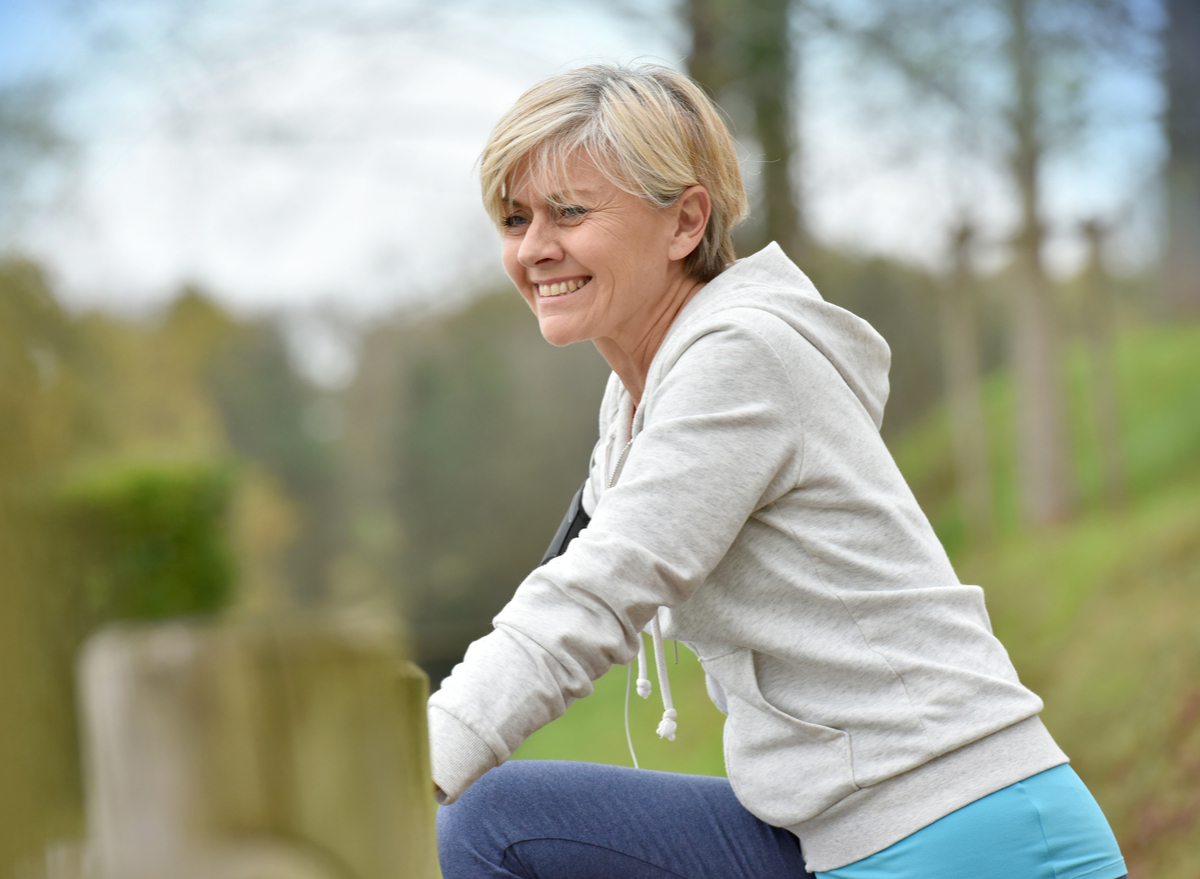
You've heard it time and time again since you were a child: Exercise! Personal fitness and a regular regimen of physical activity has been advised as a pillar of healthy living for centuries. Even Hippocrates, largely considered the father of medicine, handed out written prescriptions for more exercise to his patients during the days of ancient Greece.
Indeed, it's impossible to seriously argue that exercise isn't important when it comes to living one's best (and healthiest) life. Beyond exercise's seemingly endless parade of physical health benefits, a solid workout can also work wonders for the mind and overall mental health. Research conducted at Yale University and the University of Oxford published in The Lancet even concludes that consistent exercise is much more important for mental health than income or the number of zeros in your bank account.
Post-workout euphoria is well-documented, and probably most synonymous with enjoying a "runner's high" following a strenuous jog. Ironically, however, while exercise may help us feel good after the fact, it isn't exactly pleasant while we're grunting, sweating, and lifting. Getting started is often the hardest aspect of exercise, as the couch is usually much more inviting than the treadmill.
Many older adults use their age as an excuse to stay seated, telling themselves fitness just isn't "worth it" past a certain age. This is a major mistake and flat-out false. For instance, research published in The Journals of Gerontology Series B found that even elderly individuals considered frail still stand to reap major physical and cognitive benefits from regular exercise.
Luckily, there are a number of secret strategies and tricks that can help you enjoy exercise much more—even if you're over 50 years old. Read on to learn more, and next, don't miss The Best Workouts for Stronger Muscles After 50.
Start slow with a walk
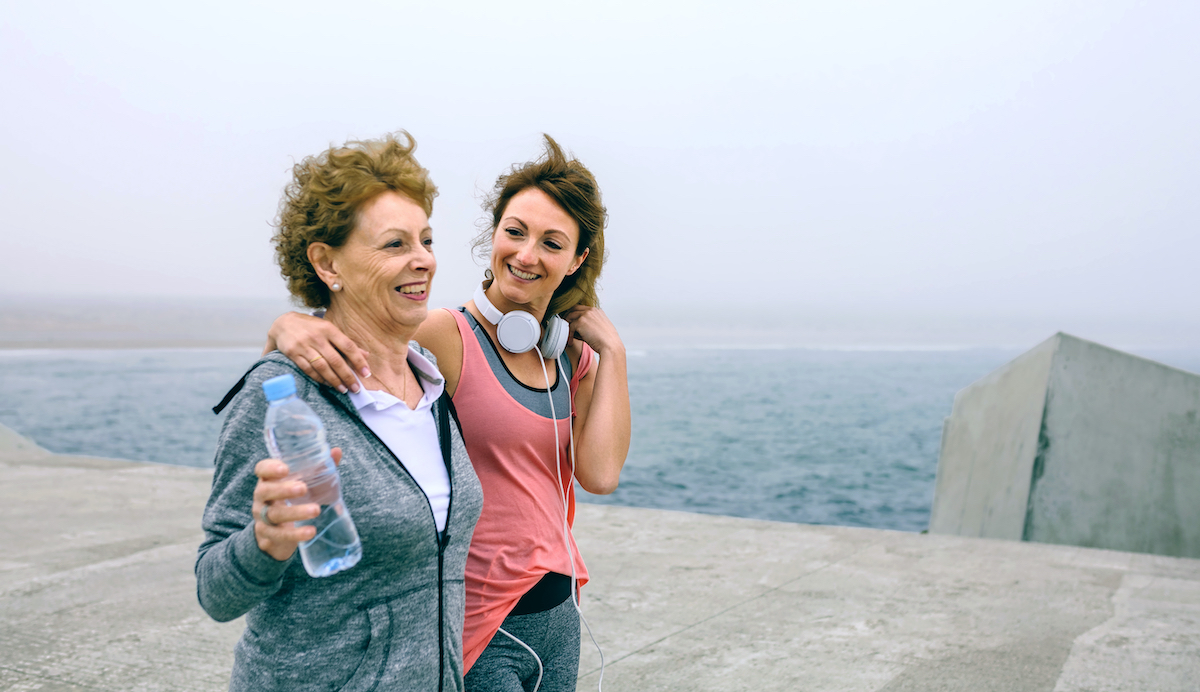
If the very thought of entering a gym or picking up a free weight makes you cringe, consider adding a walk to your daily routine. Fascinating research published in the scientific journal Emotion discovered that going for a casual walk can both improve mood and boost overall energy levels. Importantly, that research also states that walking can have this effect even if the individual is actively expecting to feel worse after their walk.
In other words, if you're feeling particularly lazy or crummy one day, go for a walk. You may just realize afterward that you're feeling more energized and willing to tackle a more strenuous form of physical activity.
Another interesting aspect of this study is that examined participants were merely walking as part of their usual routines, not as a strict form of "exercise." So, if it helps, avoid labeling your daily walk as exercise. Instead, either see it as a recreational activity or a means to an end (walking to the store, etc).
"Taken together, the experiments demonstrate that incidental ambulation (walking as part of a routine) systematically promotes positive effect regardless of the focus on such movement, and that it can override the effects of other emotionally relevant events such as boredom and dread," study authors conclude.
Related: Sign up for our newsletter for the latest health and fitness news!
Multitask at home
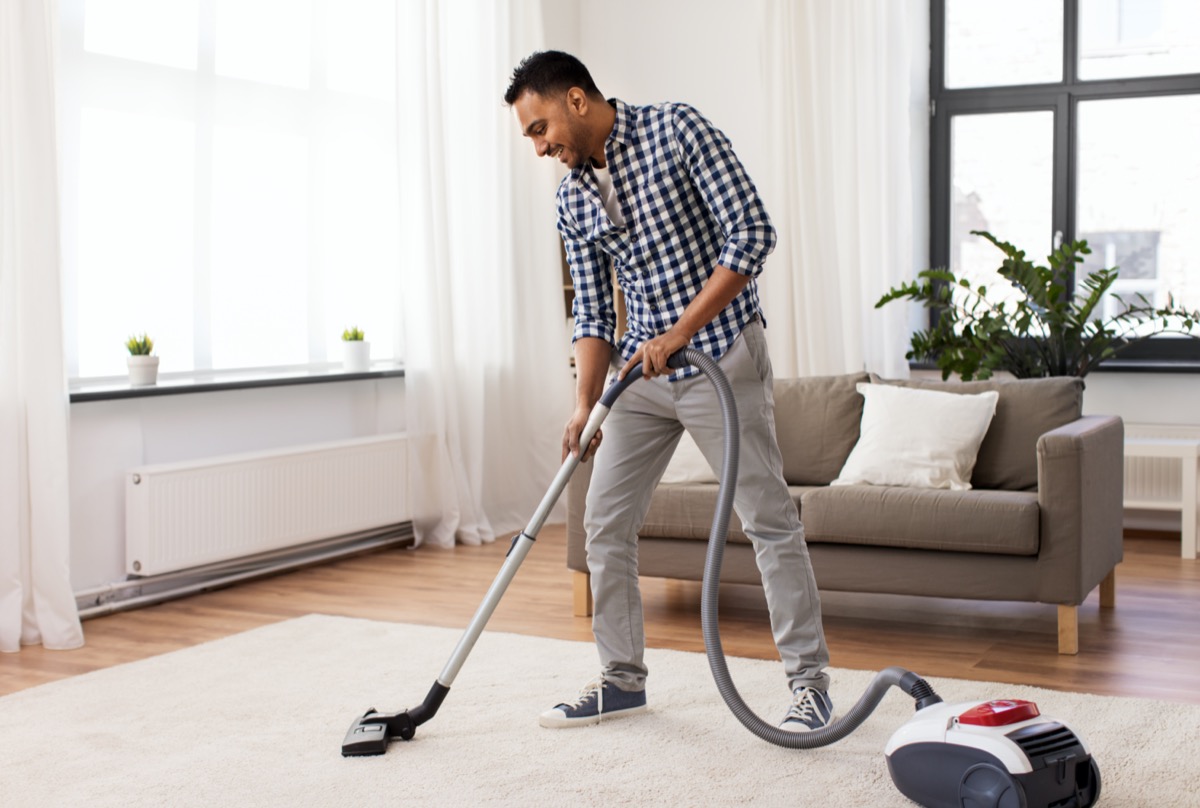
Not crazy about the idea of visiting a public gym and sweating side by side with strangers? You're not alone. A recent survey reports two-thirds of Americans prefer exercising within the comfort of their homes over traveling to a physical gym location.
Moreover, for older adults looking to check off their fitness boxes at home, plenty of research tells us "formal exercise" isn't always necessary. One study reports older individuals can get in some exercise and improve their physical and emotional health all by simply keeping a tidy home and staying on top of household chores. Cleaning is often comforting, and older individuals can enjoy the best of both worlds by exercising via housekeeping.
"House cleaning kept them up and moving," says Kathy D. Wright, Ph.D., RN, CNS, a postdoctoral KL2 Scholar at Case Western Reserve University's Frances Payne Bolton School of Nursing. "A clean environment is therapeutic."
Another study released in the Journal of the American Geriatrics Society concludes older women can add years to their life by engaging in just 30 minutes of housework daily.
"Improving levels of physical activity both light and moderate could be almost as effective as rigorous regular exercise at preventing a major chronic disease," comments senior study author Dr. Andrea LaCroix. "We don't have to be running marathons to stay healthy. The paradigm needs to shift when we think about being active."
Related: The Best Way to Get a Lean Body After 50, Science Says
Find a similarly aged exercise partner
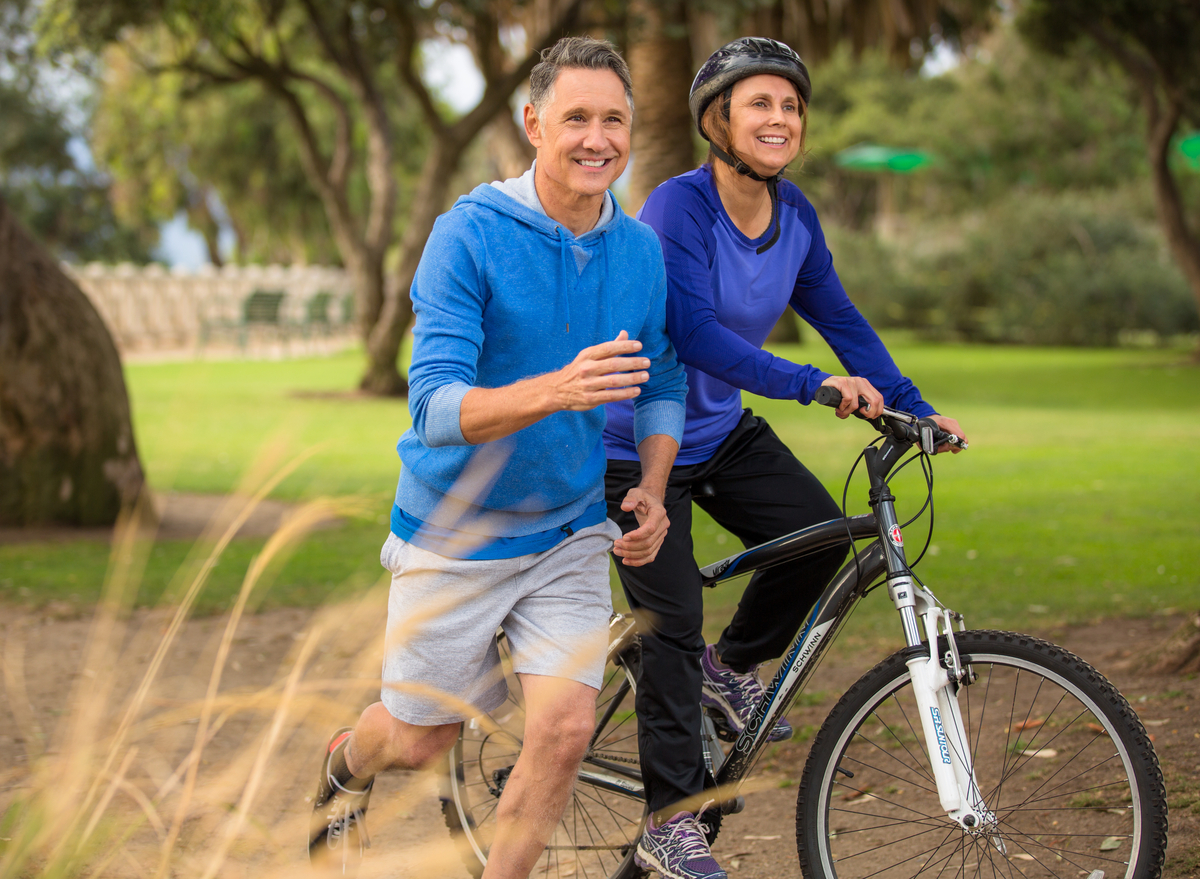
Pretty much everything is better in the company of a friend, and exercise is no different. More specifically, however, research indicates that finding an exercise partner close to you in age is especially helpful when it comes to sticking with fitness for the long haul. Published in Health Psychology, the experiment gathered together over 600 older adults and assigned each to a 24-week workout program. Those who were placed in a workout group with individuals of a similar age ended up attending roughly 10 more exercise classes than other participants.
"All of this together points to the power of social connections," says lead study author and University of British Columbia kinesiology professor Mark Beauchamp. "If you set the environment up so participants feel a sense of connection or belonging with these other people, then they're more likely to stick with it."
Additionally, this research project published in the British Journal of Health Psychology came to similar conclusions. Researchers say working out with a partner leads to more time spent exercising, particularly when your workout buddy is emotionally supportive.
"Once we found that having a new exercise companion increases exercise frequency we wanted to find out why this is beneficial and what quality of support they offer that has this effect. Our results showed that the emotional social support from the new sports companion was the most effective. Thus, it is more important to encourage each other than doing the actual activity together," says Dr. Pamela Rackow from the Institute of Applied Health Sciences at the University of Aberdeen.
Take up golf
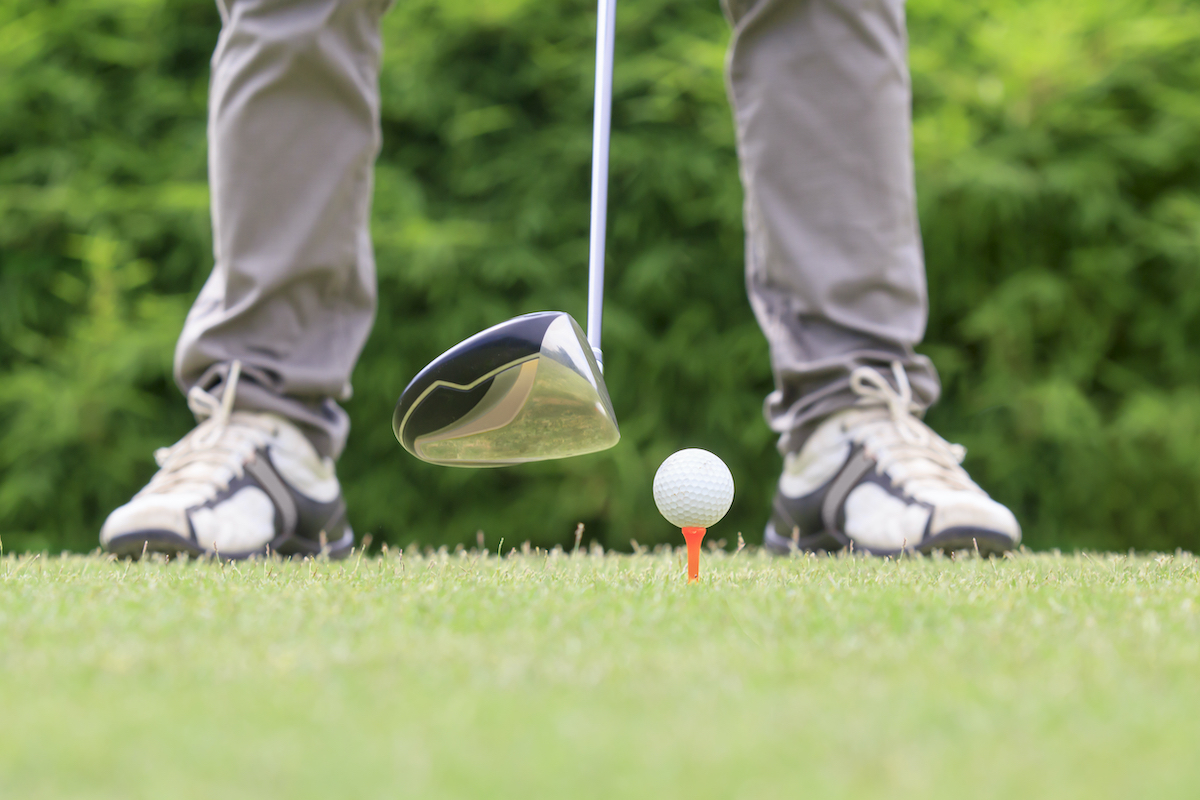
Golf rarely gets the fitness respect afforded other sports like basketball or football, but playing a few rounds on the green can offer older adults plenty of health benefits. A recent comprehensive review of relevant research pertaining to golf and its impact on the body reports that regularly playing golf helps the mind, body, and improves overall longevity. More specifically, the report published in the British Medical Journal tells us golf can lower heart disease risk and improve both strength and balance in older adults.
Picking up the putter is an especially attractive option for older exercisers because it's a sport that gets us moving with minimal risk of injury. Over the age of 50, playing a game of basketball or tackle football may not be the best idea if one is looking to avoid an injury, but golf is a safer option. Moreover, golfing by its very nature is a social sport, usually taking place within a group in the outdoors. In this way, golfing is a great way for older adults to get moving, get outside, and spend some time with friends all at once.
Further research from the American Heart Association even finds that playing golf as little as just once per month can lower the risk of death in older adults.
"While walking and low-intensity jogging may be comparable exercise, they lack the competitive excitement of golf," lead study author Adnan Qureshi, M.D., explains. "Regular exercise, exposure to a less polluted environment, and social interactions provided by golf are all positive for health. Another positive is that older adults can continue to play golf, unlike other more strenuous sports such as football, boxing, and tennis. Additional positive aspects are stress relief and relaxation, which golf appears better suited for than other sports."
Related: Secret Effects of Playing Golf, Says Science
Consider your personality
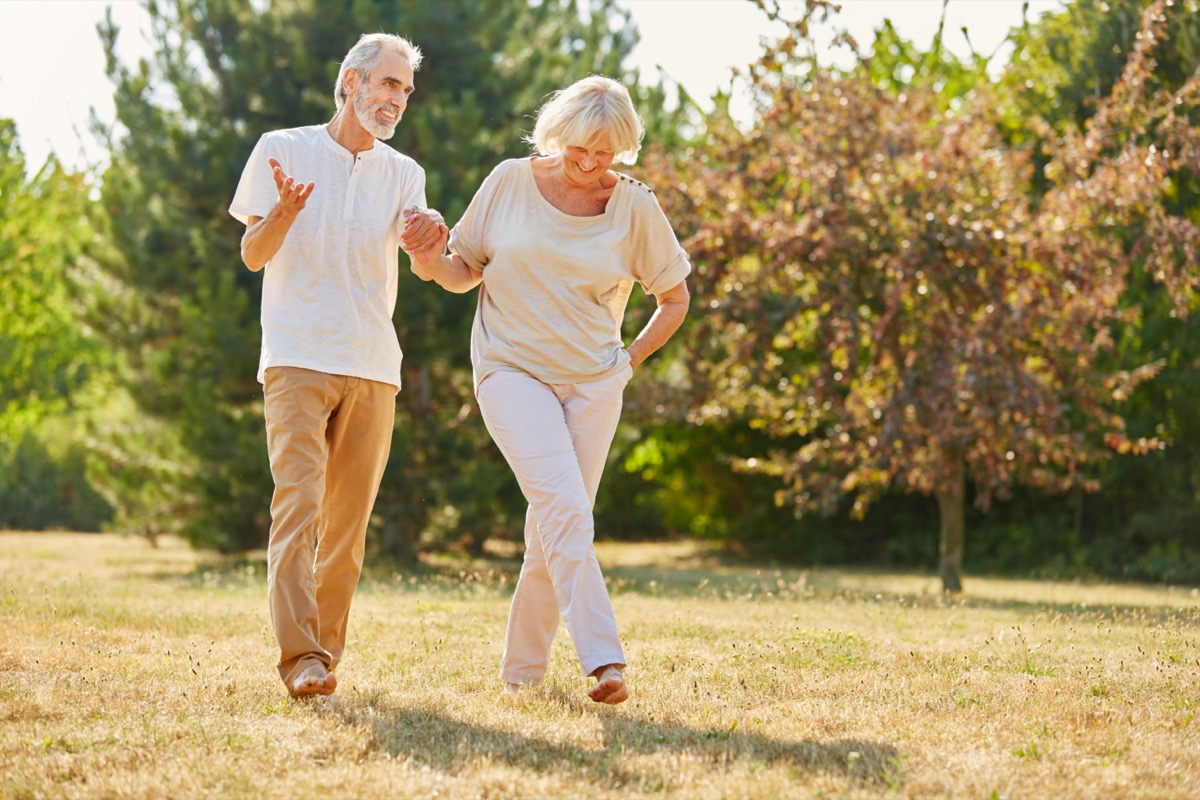
Exercise routines, like personalities, come in various forms. If you can't seem to get the swing of a specific exercise regimen you've been trying out, it's probably time to switch things up. A noteworthy study from the British Psychological Society surveyed over 800 people on their personalities and usual exercise habits – and an interesting relationship emerged.
According to the data, extroverts (outgoing individuals) are more likely to prefer working out indoors within a gym setting and people who prioritize logic over feelings/values enjoy carefully planned, regimented exercise routines. Meanwhile, people who are more creative and like playing with new ideas usually enjoy working out outside via more casual exercises like cycling or jogging.
"The most important piece of advice to come out of this research is that there is no one type of exercise that is suited to everyone," comments Chartered Psychologist John Hackston. "There can be pressure to follow the crowd to the gym or sign up to the latest exercise fad, but it would be much more effective for them to match their personality type to an exercise plan that is more likely to last the test of time."
For more, check out the Worst Exercises You Should Never Do After Age 50.








